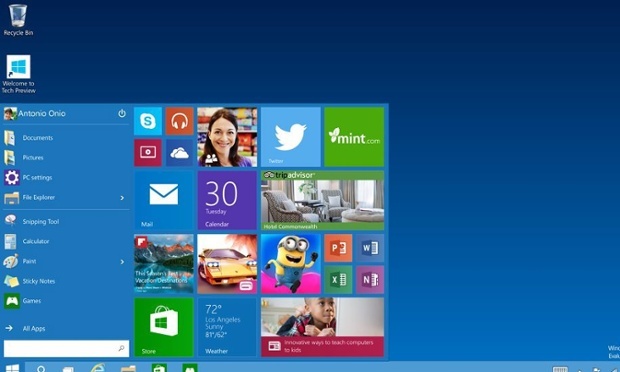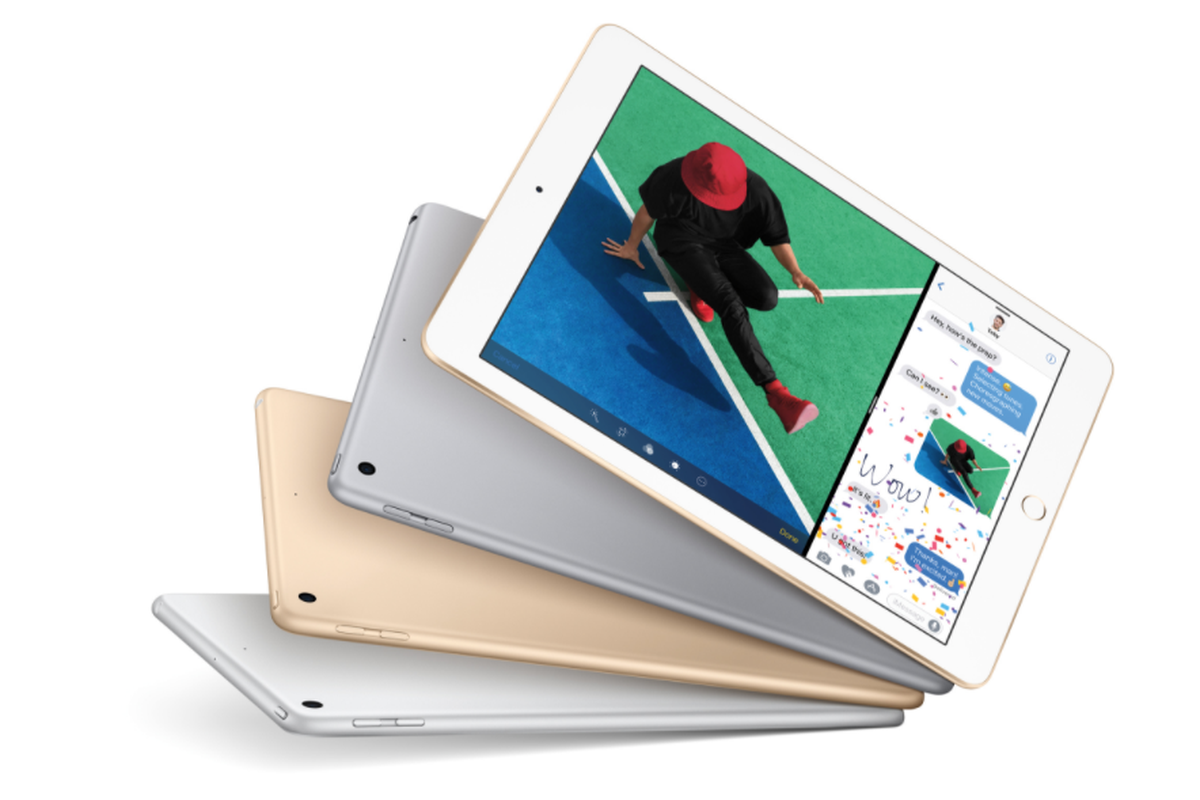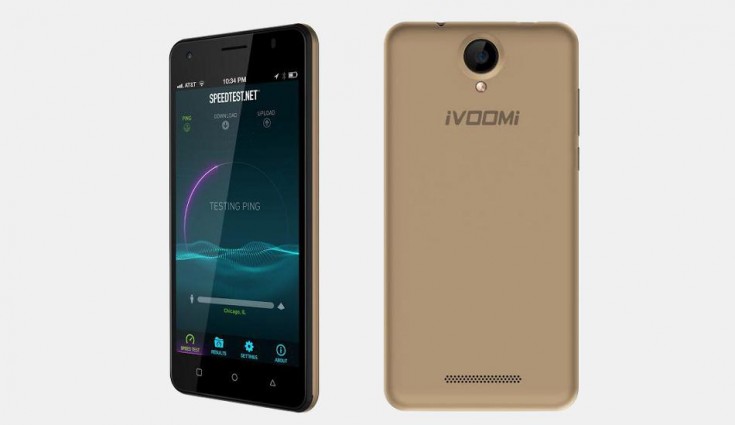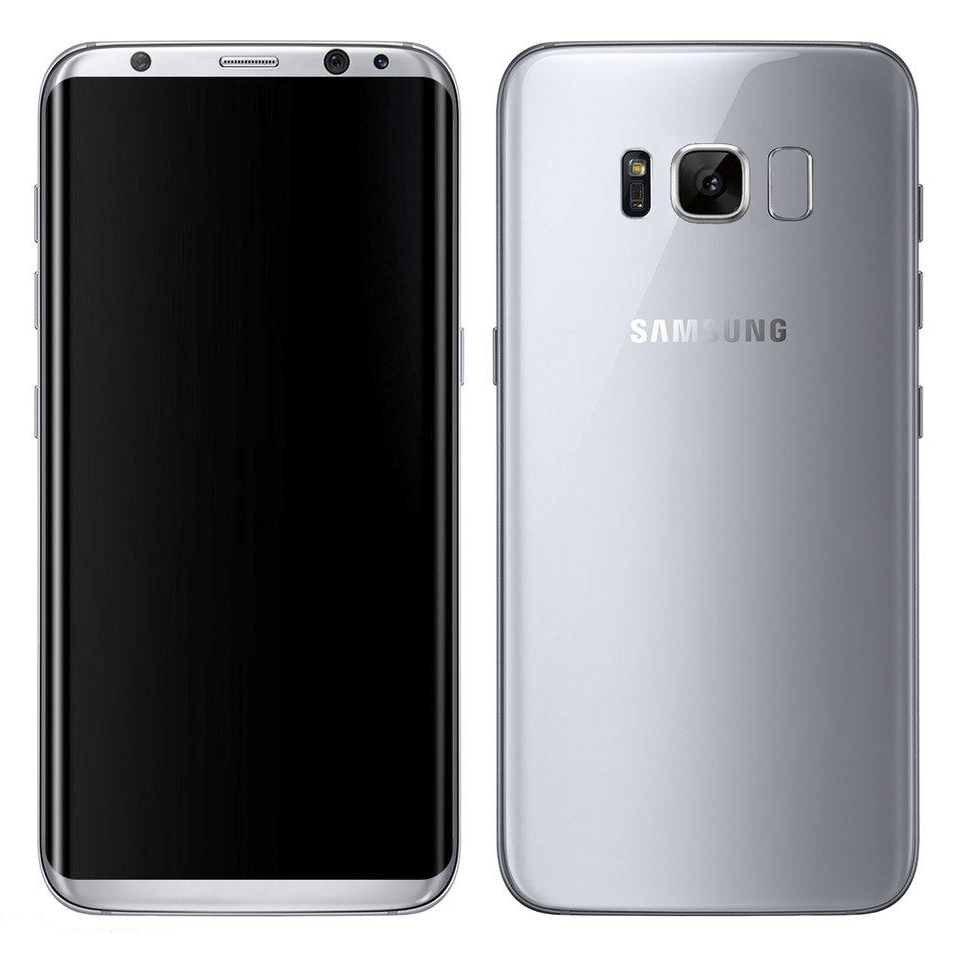Microsoft to roll out Windows 10 as it jostles with Google and Apple
First major update of operating system under new CEO Satya Nadella could be turning point for tech giant struggling to win back mobile customers.

Windows 10, featuring the Start menu, which was controversially removed in Windows 8. Photograph: Microsoft/EPA
Microsoft will unveil the first major update of its Windows operating system under new boss Satya Nadella on Wednesday as it fights to win back mobile customers from Apple and Google.
The Windows 10 upgrade will be revealed at an event in Redmond, Washington, and could mark the end of an era for the tech giant. Analysts are predicting Microsoft could make the new system available for free – a major shift for Microsoft which used to make most of its money from selling its operating system.
Windows once dominated the computing market, but its share of the world’s operating systems has fallen as users have shifted to mobile devices. This year people will buy three times as many devices running Google’s Android operating system as they will buy PCs, the area Microsoft still dominates.
“That’s the problem of the incumbent,” said Colin Gillis, senior technology analyst at BGC Partners. Gillis said if successful the system will make Microsoft the first company to offer one operating system that will work across all devices, from PCs to tablets and phones. “Arguable Microsoft could put itself ahead of the competition for a change,” he said.
Business customers received a preview of the system last October, which will replace the unpopular Windows 8 operating system. The company has said it skipped using the name Windows 9 to go straight to 10 in order to make a break with the past.
Windows 8 focussed on touch commands as Microsoft positioned itself to take on Apple and Google in mobile and tablet computing. But customers found the system awkward and a decision to drop the start menu had to be reversed with an update, Windows 8.1.
Frank Gillett, principal analyst at Forrester, said Microsoft had failed to convince enough people that Windows 8 was worth the upgrade and that he expected to see a significant shift in the way the company released its operating systems in the future.
“Windows 8 is on about 10% of PCs and even on tablets it’s only around 19%,” he said. “The problem is people don’t upgrade because it costs and it is scary.”
Gillett said that developers had also been put off by Windows 8 and that it was vital that the company won them back with the new system. “You could argue that this is the last chance for Windows to make itself relevant for developers in the modern age,” he said.
He predicted that this could be the last big version of Windows and in the future, Microsoft will roll out upgrades in the background, much as Google does with its Chrome system, as it responds to changing technology.
Microsoft has a history of launching popular operating systems after unpopular upgrades, which could bode well for Windows 10. But Gillett said Microsoft faced an uphill battle even if the new system proves a hit. “I’m skeptical that even with these technological improvements Microsoft will it needs to become a solid instead of distant number three in mobile,” he said.



